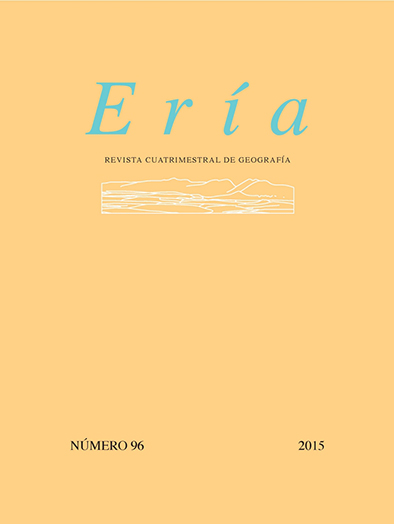Résumé
Resumen
El perfil forestal de Cantabria se construye en la actualidad tanto en torno a la producción de madera como sobre la presencia de dos espacios forestales: el de la selva atlántica y el de la silvicultura intensiva. Estos rasgos disimulan el significado local que tienen o tuvieron otras actividades en la conformación de la identidad forestal de ese ámbito. Es el caso del negocio corcho-taponero en Liébana, en cuyo nacimiento hay fuertes elementos de originalidad y cuyo desarrollo posterior, siempre sin superar la dimensión del pequeño taller artesanal, está marcado por las limitaciones de los alcornocales lebaniegos para la producción de materia prima.
Résumé
De «l’or brun» à patrimoine oublié: l’exploitation forestière et l’industrie du liège dans Liébana (Cantabria-Espagne).- Le profil de la forêt de Cantabrie (Espagne) se construit actuellement autour de la production de bois et la présence de deux zones forestières: la forêt atlantique et la sylviculture intensive. Ces traits cachent l’importance locale qui ont ou avaient autres activités dans le façonnement de l’identité de cette zone forestière. C’est le cas de l’entreprise de liège près de Liébana qui avait dans sa naissance des éléments de vraie originalité. Son développement, qui n’avait pas dépassé la dimension du petit atelier, est marqué par les limites des forêts de chêne liège de Liébana pour la production de matières premières.
Abstract
From «the brown gold» to forgotten heritage: forest exploitation and cork industry in Liebana (Cantabria-Spain).- Cantabria forest profile is currently built round the production of wood as well as around the presence of two forest spaces: the Atlantic rainforest and the intensive forestry. These features tone down the local role that other activities have or had in shaping the forest identity of this area. A case in point is the cork industry in Liébana (Spain) whose origin is marked by strongly original traits. Its later development did never exceed the limits of small handmade family industries and is constrained by the limitations of cork oak forests in Liébana for the production of raw material.
Palabras clave/Mots clé/Keywords
Tapón, corcho, industria rural, historia forestal.
Bouchon, liège, industrie rurale, histoire de la forêt.
Sttoper, cork, rural industry, forest history.

